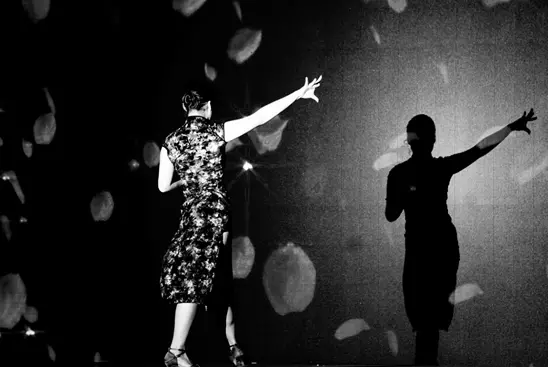Representatives of Duke University visit WHU for further cooperation
On 12th April, the delegation from Duke University, led by Dr. Sally Kornbluth, the provost, visited WHU to meet President Dou Xiankang and the academic and staff representative of WHU. Several meetings were held in the WHU Administration Building that afternoon during which the undergoing project and new proposals between two universities were discussed.

Hosted by the vice-president of WHU, professor Li Fei, the meeting was divided into three parts: the speeches of President Dou and Dr. Provost Kornbluth, the free discussion session, and the gift-exchanging session. Executive President Feng Youmei, Academician Liu Jingnan,,and Cheng Xuemeng, Head of the Office of International affairs attended the meeting.
In the beginning, President Dou made a brief introduction of the history and the achievements of WHU and congratulated on the success of the first-stage collaboration between the two universities: the construction of Duke Kushan University. Via the platform of Duke Kushan University, WHU and Duke University are more closely bound.
As for the plan for the next stage, President Dou presented several proposals: In the future, WHU will open all English taught classes to students from Duke University, and Duke will provide more opportunities for WHU students in their summer courses. Duke professors are encouraged to teach classes in WHU, and WHU faculty are supported to receive short-term trainings in Duke.

Dr. Sally Kornbluth then expressed her gratitude to the host of WHU. She and the delegation held a very positive attitude towards President Dou’s proposals, and will follow up after they went back. She mentioned that more assistance was needed form WHU for the newly started recruitment of undergraduate students in DKU. A new proposal was made by Dr. Kornbluth: to establish a WHU-Duke Research Day, which has already been successfully practiced in top Chinese universities like Tsinghua University and Peking University.
In the later part of the conference, delegations from two universities further discussed the implementation of the proposals. They also mentioned the highly-achieved precedent example of the joint training between the two physics departments. A mutual agreement is reached in regard of the student and faculty exchange programs, as well as the joint training and assistance to DKU. After the gift exchange between Principle Dou and Provost Kornbluth, the conference ended in a pleasant atmosphere.
The dancing silhouette in black and white—Top 10 Dancers Contest


The glamorous Latin dance spurts passion and fascination in every stretching and crouching.


Allure and strength burst out from the Jazz dancer’s tough and tensile movements.

The popping dancer dances to the brisk drum beat and presents a dynamic feast for the eyes. The fast movement switches amazes the audiences.

The classical jazz tells a story of an emotional lady in the early 20 century.

The dance of “Crossroad” is the climax this night with integral choreography and rich affections.

This dancer gives quite a different performance in the style of a lively Miao girl.

The soft silhouettes reveal the distinctive glamour of dancers, who light the stage with their life under the spotlight.
Egypt: Once in a Lifetime
When the airplane was flying over Sinai Peninsula, where insurgencies occurred recently, I could not hold myself from fear. Before I finally made up my mind, I was told more than once that I should pay special attention to my safety. However, I could never imagine how much I would miss this country had I never visited Egypt. Even the blasts that hit the city just the day before I left did not leave any shadow on my wonderful trip.
Shall I Compare Thee to a Summer Sun?
Egypt is most famous for its legacy of ancient civilization, which is also the stimulus for my visit. All the places of interest have left an indelible impression on me: I almost burst into tears when I was staring at pyramids and Sphinx; I marveled at tons of relics which stacked freely in the national museum. But above all, my favorite city is Luxor.
It is said that Luxor is the place you cannot miss in Egypt. Luxor used to be one of the metropolitans of ancient Egypt. A great amount of historical remains have been reserved there and Luxor Temple is one of them. The reason why it left a profound image is because it reflects the process of acculturation and the trace of history. There was incomplete wall painting of Christianity during Greek-Roman period and a mosque constructed in 10th century on the top of the roof. But its main part was originally built by Ramesses II, dating back to more than three thousand years ago.
The great impact of different religions and historical figures was fading away with time, and only time could conquer the all. Traditionally, Luxor people considered the east bank as the world for living people; as for the west, where the Valley of Kings is located, is the underworld. Therefore, the west bank used to be desolate. The divine values of life circle penetrated into the daily life of common people. At that time, you would find the ancient Egyptian civilization reviving again.

Sphinx and the Author
However, once you take a look at what is taking place in Egypt at present, you will find the gap between rich and poor and the unstable political order unbelievable. When comparing Egypt with China, whose history also spanned thousands of years, one will find that Chinese civilization is somehow more enduring and persistent, with more self-reliance and less communication with other parts of the world. However, there is no absolute superiority among civilizations, and it is diversity that truly promotes prosperity of the world.
A Controversial Impression
I do not have much difficulty in accustoming myself to the life in Egypt. When we were wandering around the city in the evening, chatting and laughing on the last few days, we could still remember how worried we were on our arrival. For most of the time we accommodated in a small city called Benha, which is sixty kilometers away from Cairo, and now I am confident to say that life there was almost as easy as here in China. However, the social environment and atmosphere are fairly different, which could be illustrated by women’s clothing.
It is widely accepted that Muslim women should wear hijabs (the scarf and gown) after childhood, but what I had never seen before was Niqab, which covers most part of the body except for two eyes. The power of assimilation is so strong that I felt it was abnormal to make myself exposed to air not long after my arrival. Some feminists propose that women should not be required to dress like that because it is against the idea of gender equality. Besides, the chances that women are involved in public life are much lower than men, for instance, most shop assistants in malls are male. Do not panic, though, for Egypt is a relatively tolerant country. And unlike Saudi Arabia, which is an extremely conservative Islam country, in Egypt, you can freely communicate to local people.
When it comes to natural landscape, what cannot be neglected is the Nile River. If you are fortunate enough to have a bird’s view of the whole country, the scene must be unforgettable: the glittering blue belt is flowing from south to north, forming a narrow oasis, and the rest of the land is boundless desert. While I was drifting on the water, what I could see was only flourishing green, which contrasts to dead and dying dunes. Then it suddenly occurred to me that it must be the miraculous power of life. The similar feeling was aroused when I visited Waterfall Hukou (part of Yellow River), where our civilization originated.

River Nile is Clean and Clear
Nice to Meet You All
What I have experienced and reflected during a trip does matter a lot, but a journey is mainly determined by whom I encountered. Sometimes it was those we came across unintentionally that brought us surprises. Just the day before one of our teachers left earlier, the attendants provided him with boiled eggs and some cheese in the midnight, in case no breakfast was offered in the early morning. After hearing this story, all of us were a little teary when we thought about their consideration and hospitality. Benha is a small place, but all the staff tried their best to meet our demand and they did make us feel at home. Surprisingly, some passers-by greeted us by saying “Hello” in Chinese, and I can still recall their sprinkling eyes and bright smiles.

Street View of Cairo
It is worth mentioning that the whole journey was filled with cross-cultural communication. While the official language of Egypt is Arabic, we were speaking English most of the time, with few local people able to speak simple Chinese. Unlike those native speakers who can easily get exactly what I am trying to say, exchanging information with people using English as their second or third language is somehow harder but more interesting. When I spoke to tourists from France and Morocco, I spared no effort to choose the most proper words, plus understandable facial expressions and body language. At that time, I had a sense of familiarity: even if we were reared in totally different families and cultures, we could resonate with each other towards the common human treasures by this effective tool—English.
To be honest, never have I ever been more aware of the importance of language. As an individual, I tried to make friends with local people by understanding their character and temperament; and as a member of a group, for instance, Chinese, I communicated with them on the basis of comprehending their unique customs and social etiquette.
When the plane slowly took off from Cairo airport, the view was almost the same, but this time I could not take my eyes off this land. Egypt is such a magical country that it has been lingering in my dream since I came back. It is a dream which I wish I would never wake up from. It seems that I am addicted to Egypt and I will definitely come back to her if allowed.
















